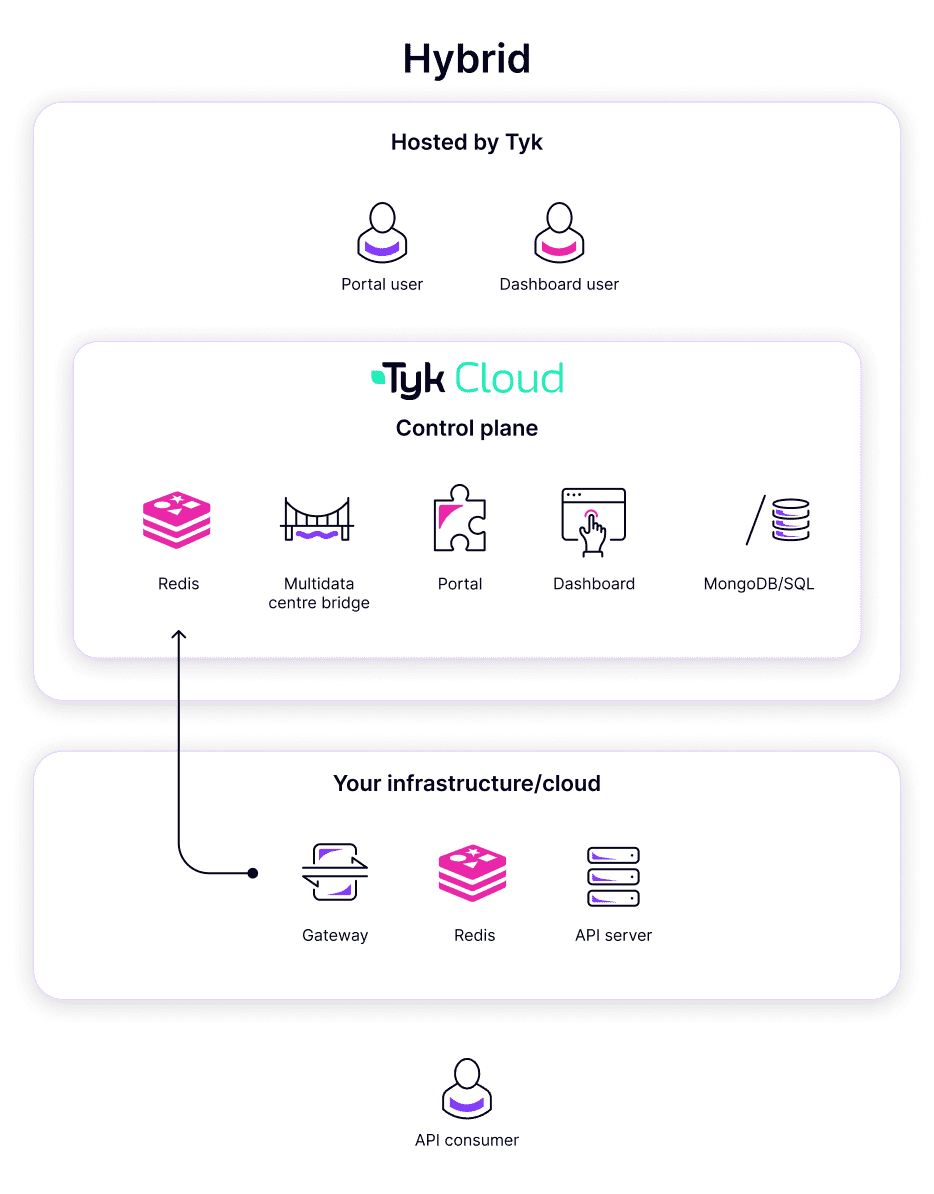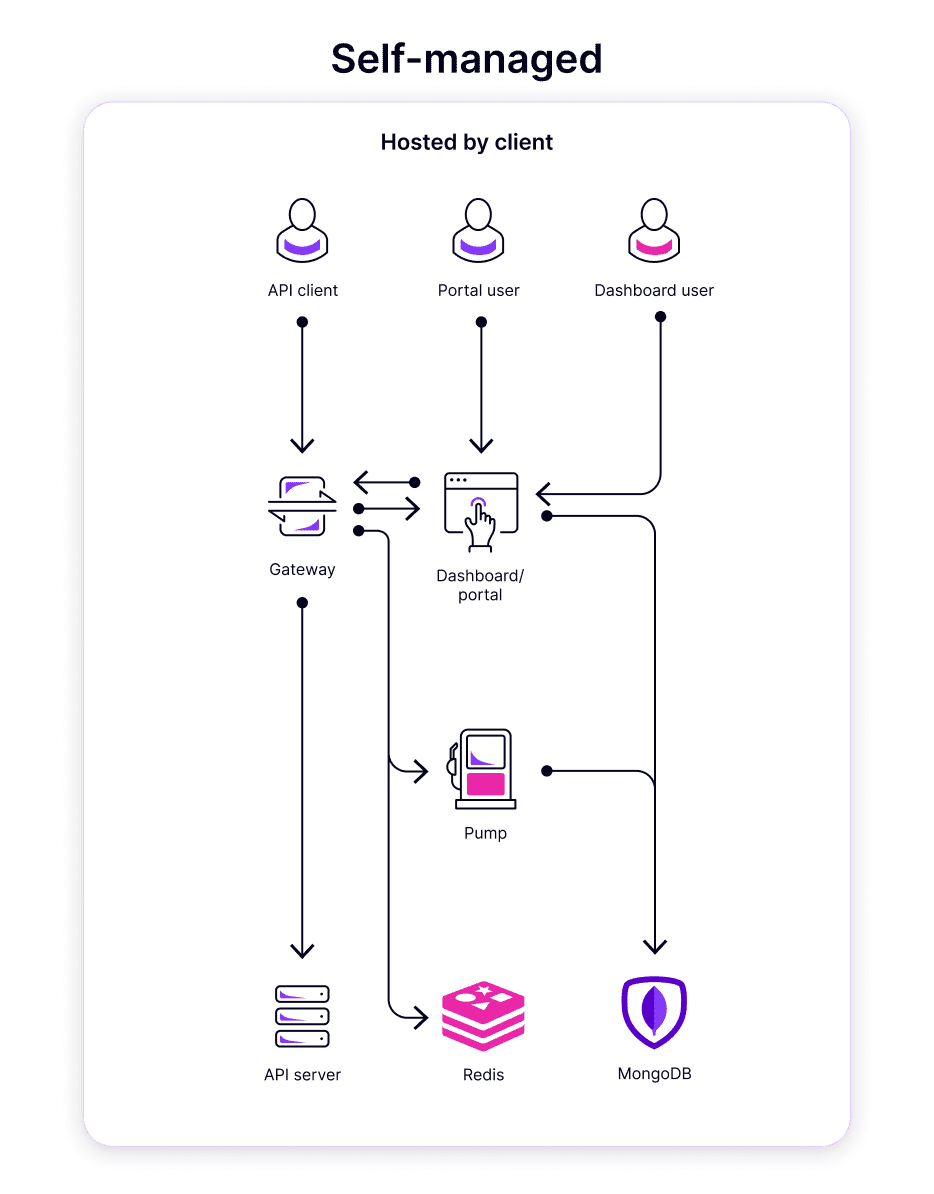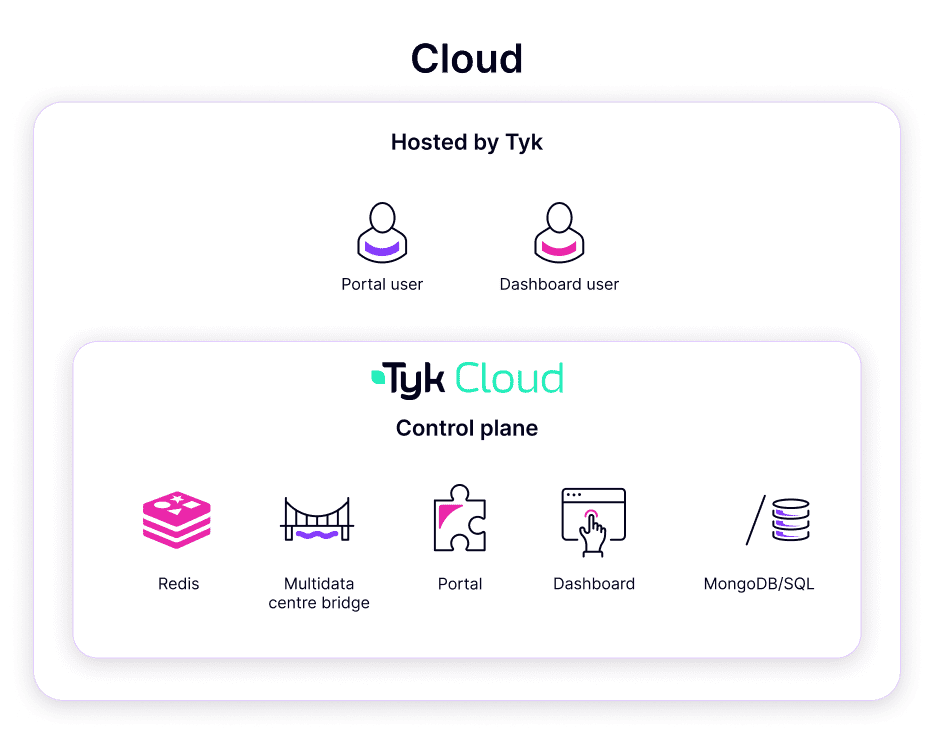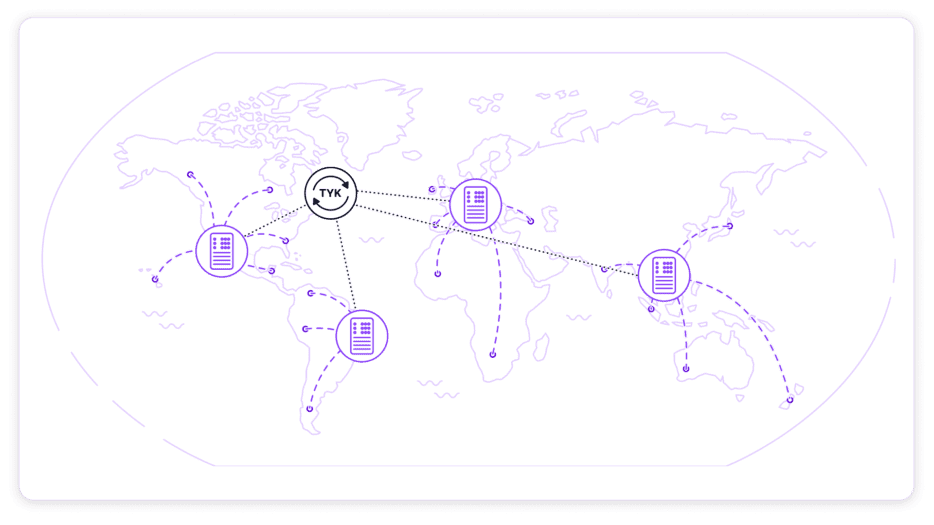API gateways are an essential part of the API economy, helping businesses maximise the value of APIs by providing access to organisations’ services and data. However, setting up and maintaining the infrastructure needed to operate these gateways take a lot of work.
Typically, organisations must either fully set up and manage their API services (self-hosted) or use a cloud provider to set up their API environment. While a self-hosted solution provides complete control and flexibility in developing a fully custom API environment, there’s a high cost involved not only in buying, setting up and maintaining the API tools and infrastructure but also in employing specialists to manage this process on an ongoing basis.
On the other hand, the cloud-hosted choice from SaaS providers allows the swift setup of API services within minutes. This approach enables organisations to utilise public gateways for hosting API environments without acquiring infrastructure. However, it does sacrifice control and full customisation, and additionally, concerns arise over shared infrastructure and restricted security features in public cloud API gateways.
Because an API gateway essentially acts as a front door connecting clients to company data and services, any compromised gateway may expose sensitive data. That’s why some companies prefer to trust their private clouds or on-premises hardware, where they have more control over access and security.
So, which option should you choose? We could go the “it depends” route, which will be accurate in its own way, but we have a better approach – a hybrid cloud approach!
Tyk’s hybrid cloud approach
A hybrid cloud approach enables organisations to experience self-managed and full-SaaS infrastructure benefits. While self-managed and SaaS require you to make tradeoffs in compliance, convenience, cost or control, with a hybrid cloud, developers enjoy the smooth scaling ability and global reach offered by the cloud for their public-facing API services — all while ensuring a high degree of flexibility, compliance and control.
In this article, we go deeper into the realms of self-managed, SaaS and hybrid gateway solutions and dive into how Tyk’s Hybrid Cloud offering provides the best of both worlds.
Deployment options
Tyk is an industry-leading cloud native API management platform powered by an open source API gateway, an intuitive dashboard and customisable developer portal. You have the choice of three deployment options – Tyk self-managed, Tyk Cloud (SaaS) and Tyk Cloud Hybrid.
Tyk self-managed
Tyk self-managed is the easiest way to install our full lifecycle API management solution on your infrastructure (private cloud, public cloud or on-premise). It provides the highest degree of end-to-end control over its setup and configuration.
Tyk self-managed enables you to utilise Tyk’s capabilities to the fullest:
- Extend platform abilities with custom plugins.
- Export observability data from Tyk Pump to external analytics or monitoring tools.
- Control data management location and methods.
- Ideal for strict governance and data sovereignty needs.
On the flip side, with great flexibility and control comes great responsibility. While we make it super easy to install Tyk on your infrastructure, you still need resources to manage and maintain it, especially from a security, reliability and scalability point of view. This may result in a higher cost of ownership and greater time to production and, therefore, value.
Tyk Cloud (SaaS)
Tyk Cloud is a fully managed service that makes it easy for API teams to create, secure, publish and maintain APIs. One of the most significant benefits of Tyk Cloud is that you can be up and running within minutes, as there is no need for complex deployments or large infrastructure teams.
You can choose between five different regions to deploy your Tyk manager (control plane) and your Tyk Gateways (data planes), and the choice of region can be dictated by its proximity to users and/or where you wish to store your data. Since most (if not all) of the infrastructure is managed by Tyk, there is no need for large infrastructure teams, reducing the total cost of ownership significantly without compromising on great reliability.
Of course, the downside is that there is less control over Tyk configuration as well as your choice of hosting infrastructure. This is great for teams looking for convenience over fine-grained configuration access and control over the end-to-end API infrastructure. The choice of regions is limited to five currently, which may not serve every user’s needs.
So, what if you wanted the best of both worlds? Enter Tyk Cloud Hybrid!
Tyk Cloud Hybrid
Tyk Cloud Hybrid provides a centrally managed control plane that manages and synchronises logically or geographically distributed data planes (clusters of Tyk API gateways). You can confidently deploy a multi-data centre, geographically isolated set of Tyk Gateway clusters for maximum redundancy, failover, latency optimisation, and uptime.
Let’s look at the similarities and differences between Tyk Cloud and Tyk Cloud Hybrid. While both central control planes are hosted in Tyk’s cloud infrastructure, the key difference lies in the data planes. Tyk hosts these for Tyk Cloud but can be hosted on your infrastructure or as a combination of our infrastructures (some in Tyk, some locally on your end).
The benefits
Here’s what you have to look forward to with Tyk Cloud Hybrid:
- Flexibility: Tyk Cloud Hybrid offers a notable advantage in terms of flexibility. You can distribute your data planes across various data centres and cloud providers in different regions globally, and the capability for multi-cloud deployment safeguards you against vendor lock-in. With this approach, you can alter your infrastructure as desired without any constraints or penalties.
- Engineering efficiency: Tyk Cloud’s control plane allows you to centrally manage multiple Tyk Gateway clusters. This has many advantages over having separate gateways and corresponding dashboards/portals, which would require manual synchronisation to roll out any changes (e.g. new APIs) across all the individual gateways.
For example, organisations using multiple API gateways can each operate under different isolated gateways, with the centralised management layer in Tyk ensuring standard governance and security policies. Isolated gateways make customising configurations and your setup easy, allowing you to focus on what matters most: developing applications.
- Optmised costs: With Tyk Cloud Hybrid, you get an optimised cost to balance control and convenience. You pay for what you need, where you need it, without the need for high infrastructure maintenance costs.
- Reduced latency: Positioning data planes near geographically dispersed API users reduces perceived latency by minimising API request round trip time. Local caching of keys and configurations in data planes also enables geographically focused operations whereby all traffic to/from the data plane undergoes in-data-centre rate limiting, authentication, and authorisation, further cutting API request round trip time.
- Ease of use: Getting started with Tyk Cloud Hybrid is simple, as Tyk handles all infrastructure setup and maintenance aspects. Organisations can have their API environment running in minutes, which shortens the time for deployment.
- Digital Innovation: Tyk Cloud is cloud agnostic, enabling gateways to operate in various cloud environments without concerns of vendor lock-ins or security risks. Modern innovation relies on decentralised API management solutions like this, offering complete control over API systems and the convenience of cloud-based operations.
The perfect harmony
Too often, choosing between methods or solutions requires careful consideration of multiple factors to know what works best for you. However, when it comes to API management systems, Tyk’s hybrid approach gives a much more straightforward answer to the question of “one or the other.” It’s both.
Tyk Cloud Hybrid dramatically eases the burden of deploying and maintaining APIs, finding the right balance between the accessibility and low cost of cloud management platforms with the compliance and control of on-premises solutions. It allows businesses to build and deploy multiple APIs across multiple cloud platforms from a single dashboard without having the burden of infrastructure or maintenance.
Try Tyk Cloud Hybrid to get all the benefits of cloud management with the comfort of on-premise infrastructure.



